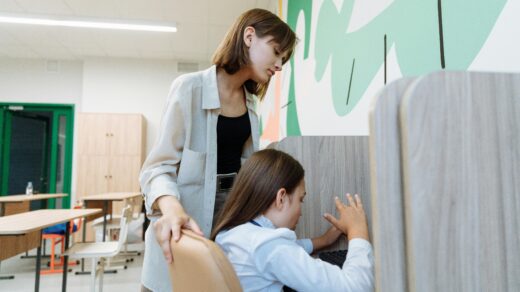Children’s Guide To Coronavirus

As cases of Coronavirus in the UK rise and Europe goes on lockdown, the UK Government is tightening its measures to prevent the virus from spreading uncontrollably. We have seen European countries take on measures such as closing borders, quarantine, schools closing and closure of all non-essential businesses.
However, few people have addressed how to approach the subject of Coronavirus with their children. Uncertainty, rumours and exaggerated information can cause panic, not only among adults but also among children.
The material below helps parents explain in a simple and objective way what the new virus is, the phases of prevention and shows that measures to prevent the virus can be achieved through creative and playful tasks.
What’s going on?
For children, it might seem confusing that their life is on pause.
Everyone seems to be talking about it: newspapers, news, TV and radio, adults… There are so many opinions, images and reports floating around that for kids it can be tough to separate fact from fiction. Feelings such as stress, worry and anxiety are heightened, but having open discussions with your children can help to reduce any potential distress.
Uncertainty may foster feelings of worry for children. Make sure to reassure your children that top scientists and doctors are in the process of developing a vaccine, which is why in the meantime prevention is so important!
Your child may naturally have questions. Invite them to discuss their queries and concerns openly with you or try fun activities such as drawing to open up dialogue. If your child is too young to understand the virus, make an effort to wash your hands in front of them regularly and encourage good hygiene practice.
There is no need to dwell on the number of deaths caused by the virus with your children, as it fosters unnecessary panic.
Of course, children are naturally curious and may want to know how many people have died but this should be explained in a sensitive and appropriate way.
Most of us are not science experts, and it can be confusing for a child as to why certain measures, such as schools closing, are taking place at different times around the world.
Keep an open dialogue, especially with older children, and try to keep familiar routines and a sense of regular structure as normal as possible.
What are the phases of prevention?
Prevention starts with hand washing. Encourage your children to wash their hands several times a day, especially if you have been out and about. Bring sanitiser out with you.
Be a role model!
Make sure your children see you washing your hands regularly.
Rub your hands with soap and wash with warm water for at least 20 seconds (you could use a timer to help!)
- Avoid close contact with people who are unwell
- Avoid touching your face with unwashed hands
- Catch your coughs and sneezes with disposable tissues, and if you do not have a tissue at hand, use your sleeve.
- Make sure to throw the tissue away after




